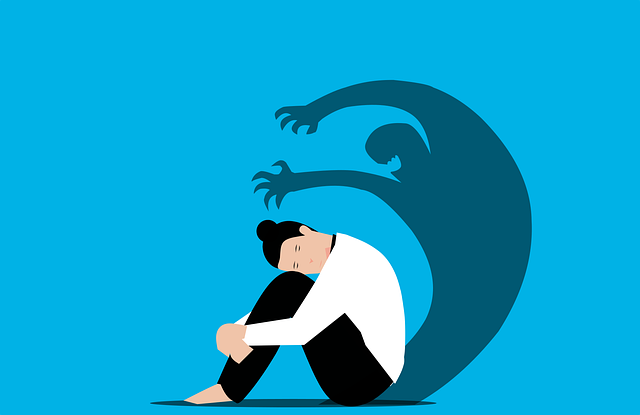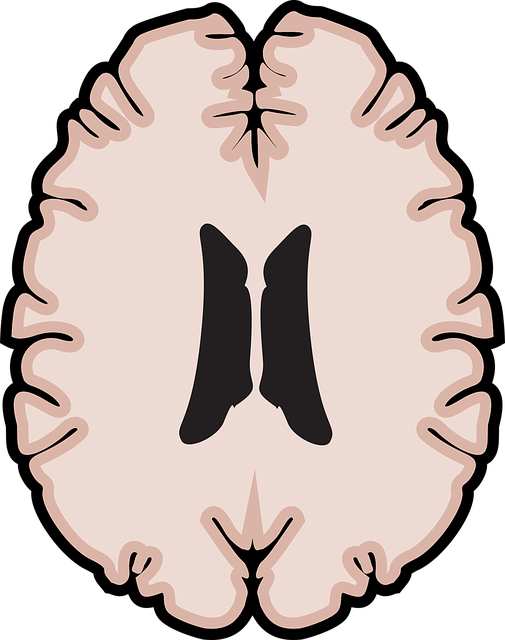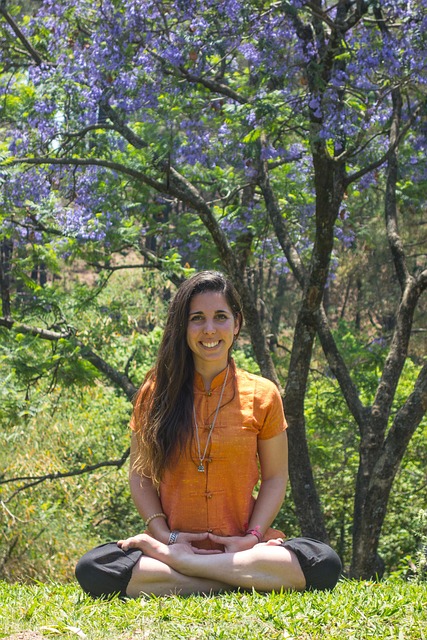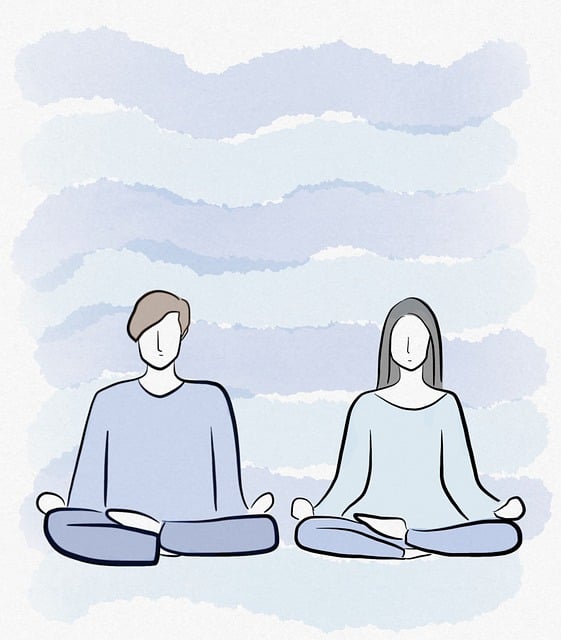Mindfulness meditation, as practiced through Centennial Chronic Illness Therapy, offers a holistic approach to managing chronic illnesses. By focusing on present-moment awareness, individuals cultivate self-compassion and emotional balance, reducing stress and symptoms like pain and anxiety. A supportive environment, free from distractions, enhances regular practice, while specific techniques like breath awareness build focus and resilience. Beyond formal meditation, mindfulness in daily activities improves well-being, prevents burnout, and aids crisis intervention for effective chronic health management.
“Unwind your mind, embrace peace, and explore the transformative power of mindfulness meditation—a powerful tool for managing chronic illnesses. This comprehensive guide offers a journey towards holistic wellness, tailored for those seeking Centennial Chronic Illness Therapy. From understanding the fundamentals to mastering techniques, we’ll navigate preparing your mindset and space, providing practical tips for consistent practice. Learn how to integrate mindfulness into daily life, going beyond the cushion, to cultivate a sense of calm and resilience.”
- Understanding Mindfulness Meditation for Chronic Illness Management
- Preparing Your Mindset and Space for Daily Practice
- Techniques and Tips for Effective Meditation Sessions
- Integrating Mindfulness into Daily Life Beyond the Cushion
Understanding Mindfulness Meditation for Chronic Illness Management

Mindfulness meditation has emerged as a powerful tool for individuals living with chronic illnesses, offering a unique approach to managing symptoms and enhancing overall well-being. This ancient practice focuses on cultivating present-moment awareness, helping folks develop a deeper understanding of their bodies and minds. By encouraging non-judgmental observation of thoughts and sensations, mindfulness meditation empowers people to navigate the challenges of chronic illness with greater resilience.
For those dealing with long-term health conditions, incorporating mindfulness into daily routines can provide much-needed respite from stress and fatigue. It facilitates a sense of calm and emotional balance, which is particularly beneficial in managing symptoms like pain, anxiety, and depression. Moreover, Centennial Chronic Illness Therapy emphasizes that regular meditation practice supports burnout prevention and enhances emotional intelligence, crucial aspects for maintaining stability during times of illness. This holistic approach to wellness encourages individuals to embrace a compassionate relationship with themselves, fostering effective crisis intervention guidance as they navigate their health journeys.
Preparing Your Mindset and Space for Daily Practice

Creating a conducive environment is essential for establishing a consistent mindfulness meditation practice, especially for those managing chronic illnesses through Centennial Chronic Illness Therapy or other holistic approaches. Preparing your mindset involves acknowledging and accepting that meditation is not about clearing your mind but rather observing and gently guiding your thoughts back to the present moment. This shifts the focus from a mental blank state to cultivating awareness and self-compassion.
Spacewise, dedicated areas for practice can significantly enhance your routine. Whether it’s a quiet corner in your home or a special spot outdoors, ensure it feels calming and inviting. Remove distractions like phones and notifications, and consider incorporating elements that promote relaxation, such as soft lighting, soothing scents, or even plants. This prepared space serves as a sanctuary where you can retreat to daily, fostering a sense of calm and continuity in your self-care practices, including Social Skills Training and the broader Public Awareness Campaigns Development.
Techniques and Tips for Effective Meditation Sessions

Effective mindfulness meditation sessions rely on mastering specific techniques and incorporating practical tips. Start by finding a quiet, comfortable space free from distractions. Centering your awareness on your breath—the anchor of mindfulness—allows for a gentle return to the present moment whenever thoughts wander. This practice not only enhances focus but also cultivates resilience building and confidence boosting.
During meditation, embrace a non-judgmental attitude towards your experiences. Thoughts and sensations will arise; observe them without attachment or reaction. This fosters cultural sensitivity in mental healthcare practice, recognizing that every individual’s journey is unique. Gradually extend mindfulness beyond breath to bodily sensations, emotions, and surroundings, allowing for a deeper connection with yourself and your environment.
Integrating Mindfulness into Daily Life Beyond the Cushion

Mindfulness doesn’t just exist within the confines of a meditation cushion. Integrating this practice into daily life is a powerful way to enhance well-being, especially for those managing chronic illnesses. Beyond formal meditation sessions, mindfulness can be woven into routine activities like walking, eating, or even waiting in line at the grocery store. For instance, practicing mindful breathing during these mundane moments can help cultivate present-moment awareness and reduce stress responses.
Centennial Chronic Illness Therapy recognizes this broader application of mindfulness as a valuable tool for burnout prevention and crisis intervention guidance. By incorporating self-awareness exercises into daily routines, individuals can better regulate emotions, improve focus, and foster a deeper connection with their bodies—all essential aspects of managing chronic health conditions effectively.
Mindfulness meditation, as a complementary practice, offers significant benefits for individuals managing chronic illnesses. By understanding its principles and preparing a dedicated mindset and space, you can embark on a journey towards improved well-being. The techniques and tips provided in this article serve as a guide to effective sessions, while integrating mindfulness into daily life can lead to a holistic transformation. Embracing these practices may enhance your overall Centennial Chronic Illness Therapy experience, fostering resilience and a deeper connection with yourself.














